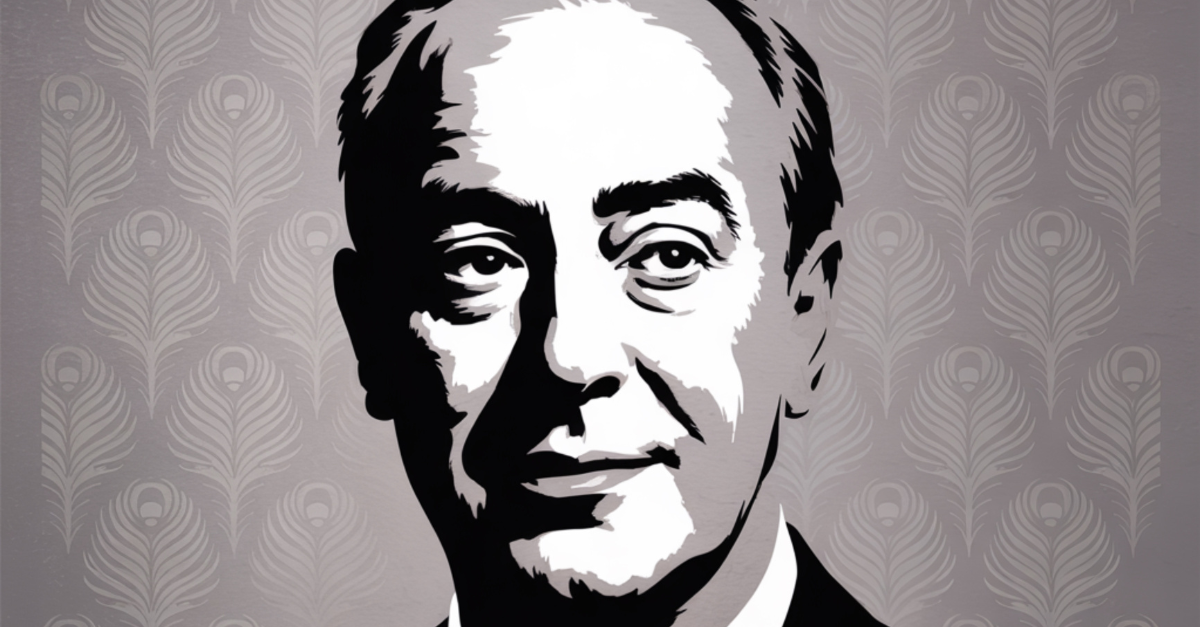Deep Life Reflections: Friday Five
Issue 132 - Beginner
When was the last time someone asked you a question in front of others, and you didn’t even understand the question, let alone the answer?
Welcome to Issue 132 of Deep Life Reflections.
If you’ve ever started something completely new, especially learning a new language, you likely know the feeling. That hollow tin sensation of inadequacy.
I experienced it in my second Spanish class this week. The teacher asked me something. I didn’t recognise the words. Reaching for my phone and Google translate felt like a tremendously bad idea. Instead, I deployed my usual Get Out of Jail Free card: “No entiendo” (“I don’t understand”).
Didn’t work.
More Spanish was hurled my way. I felt every eye on me.
It didn’t help that I had missed the first two classes. So, I didn’t really know my classmates. Or the style and approach of the teacher. They’d spent the first class getting to know each other. That matters a lot.
I really had no idea what to say.
And what do we do when under pressure? We go back to what we know best. In my case, English. Big mistake. Using English in a Spanish class gets the same kind of reaction as asking a chef in Italy if they can make a few modifications to their 200-year-old family recipe pasta. In short, don’t.
Some very uncomfortable minutes followed, as one of my classmates took pity and explained in English what I was supposed to do. Turns out, I was just meant to copy a table of words from the screen into my textbook, which somehow made it even worse, given it was so simple.
I’ve spent a lifetime mastering English, and as someone who writes and thinks regularly, I pride myself on my ability to learn, analyse, and think critically; to try and make sense of complex ideas. Basically, to feel accomplished in certain things.
But here, in this one situation, it felt like all that capability had been erased in one ill-timed hard-drive crash.
Of course, I know this is normal when it comes to learning a new language. I know it takes time. Patience. Daily work. Building the muscle. All this I know. But being in a room full of strangers at the same time, a public shaming if you like, was an alien experience for me as an adult.
This particularly uncomfortable experience is behind this week’s issue: what it means to be a beginner again, using language as the path.
I want to explore what happens to our sense of self when we are not in control. To bring this to life, I found three writers who all intentionally turned to a second language. In doing so, it changed how they wrote and how they saw the world. They all used language as a mirror, a way to expand their horizon.
Whatever your native tongue, please join me for this week’s essay-style Friday Five as we explore what these writers discovered and what we might take from them in our own journeys.
Vladimir Nabokov: The Master of Style
Vladimir Nabokov was a master of linguistic precision: stylistically exact, emotionally detached, and always in command of his sentences. Born in Russia in 1899 to an aristocratic family, he was educated in England, lived in Germany and France, and eventually emigrated to the United States. He wrote in both Russian and English, often translating his own work.
But he learned to write first in English.
Writing in English, he claimed, freed him from sentimentality. It gave him a cooler, more surgical edge. “My head speaks English, my heart Russian, and my ear speaks French,” he once said. English allowed him to observe his emotions from a distance; Russian gave those emotions their texture and depth.
One critic noted that Russian contains far more nuanced words for emotional states like fear, anxiety, and impatience than English does, subtleties Nabokov absorbed intuitively. But it was English that gave him the scalpel. His sentences became cleaner, more ironic, more exacting.
Switching languages meant he could feel in one language and dissect in another. A powerful gift to a writer.
Samuel Beckett: The Freedom of Constraint
Where Nabokov used a second language to gain distance, Samuel Beckett used a second language to start over.
On March 13, 1946, while revising a short story, Samuel Beckett drew a horizontal line across his notebook. All the lines above were in English. Everything below was blank but would now be written in French. It was the moment he became a different kind of writer.
Beckett, then 39, had lived in the shadow of James Joyce, another ambitious Irish novelist writing dense, demanding work. But in Europe’s English-dominated literary world, there was only room for one Irish writer, and that was Joyce. All Beckett’s work was viewed through the prism of Joyce’s prose.
To break free, Beckett turned to French. It was his rebellion and rebirth.
Writing in French changed everything. He said it forced him to write “without style”—stripped down and sparse, essential. The very constraints of the language helped him find his own voice. And that voice—deadpan, minimalist, absurd—would go on to reshape modern literature.
Jhumpa Lahiri: In Exile
Unlike Nabokov and Beckett, who moved between dominant European languages, Jhumpa Lahiri has never felt fully at home in any language.
Born in London to Bengali parents and raised in the United States, the Pulitzer winner describes herself as living in a kind of linguistic exile. Her mother tongue, Bengali, is largely absent from her adopted country. Added to that, she can’t read or write it. Even her native language feels foreign.
That sense of linguistic purgatory created an opening. And into that space stepped Italian.
Lahiri became infatuated with the language after visiting Florence in 1994. She immersed herself completely. “I read slowly, painstakingly. With difficulty,” she writes. “The obstacles stimulate me. Every new construction seems a marvel. Every unknown word a jewel.”
By writing in Italian, Lahiri says she escapes both her failures and her success. “I’m bound to fail when I write in Italian, but, unlike my sense of failure in the past, this doesn’t torment or grieve me.” As with Beckett, the new language offered the possibility of transformation.
In her book, In Other Words, Lahiri writes that transformation, especially one deliberately sought and involving roots and identity, is often perceived as something disloyal and threatening. But she sees it differently, as natural and even expected, just like in the animal kingdom.
Still, she acknowledges a limit: “I can write in Italian, but I can’t become an Italian writer.”
There’s no final arrival. Just a different kind of growth.
Language as a metaphor for growth
Each of these writers—Nabokov, Beckett, Lahiri—turned to a new language to find something new. Their motivations were different, but there’s a commonality of discomfort, humility, curiosity, and ultimately growth.
Indeed, language can be a metaphor for growth. Loosening your grip on what you know, and finding a second or third way that didn’t exist until you loosened the grip.
Maybe you’re not learning a new language, but maybe you’re learning to listen better, understand more, refine, or even build a new identity. All of these are, in a way, acts of translation.
Today, September 26, is the European Day of Languages. A reminder that language is one of the oldest tools we have for understanding across cultures. In Europe alone, there are 24 official languages and more than 285 spoken.
Too often, especially in our current political and cultural climate, it feels like we’re stuck with only one language: the polarising kind. Us versus them. It’s a timely reminder that the richness of diverse thought, the essential skill of critical thinking, and the necessity of moral courage, are more vital than ever. Even if we don’t learn a new language, we can still try to listen and understand better.
To mark the European Day of Languages, all students at the school were encouraged to write a sentence about why learning a new language mattered to them. Each response was pinned on a wall. As an additional incentive, all who contributed received a piece of cake. The wall ended full.
I thought about what I wanted to say. The most obvious answer was a very practical one. I’m now living in a country, and a region, where most people speak only Spanish. I need to speak it to make life easier for myself. A perfectly good reason. But I felt I could do better.
Based on my research into these three writers, and what we know about how language learning helps increase empathy, improves problem-solving, and protects against cognitive decline, I came up with this (with a little help from Google Translate):
“Estudiar un nuevo idioma me ayuda a pensar de una manera más rica y profunda.”
(“Studying a new language helps me think more richly and deeply.”)
It’s better.
But the best response I saw came from another student. They wrote:
“I learn a new language so I can discover the world through other people’s eyes.”
They definitely earned their piece of cake.
A Question for you:
When was the last time you allowed yourself to be a beginner?
Pass It On
Thanks for reading and supporting Deep Life Journey. If you have any reflections on this issue, please leave a comment.
Deep Life Reflections travels best when it’s passed hand to hand.
If you know someone who might enjoy it, feel free to share this issue with them:
👉🏻 https://www.deeplifejourney.com/deep-life-reflections/september-26-2025
Or, if you’d like to invite them to join directly, here’s the subscription link:
👉🏻 https://www.deeplifejourney.com/subscribe
You can read all previous issues of Deep Life Reflections here.




